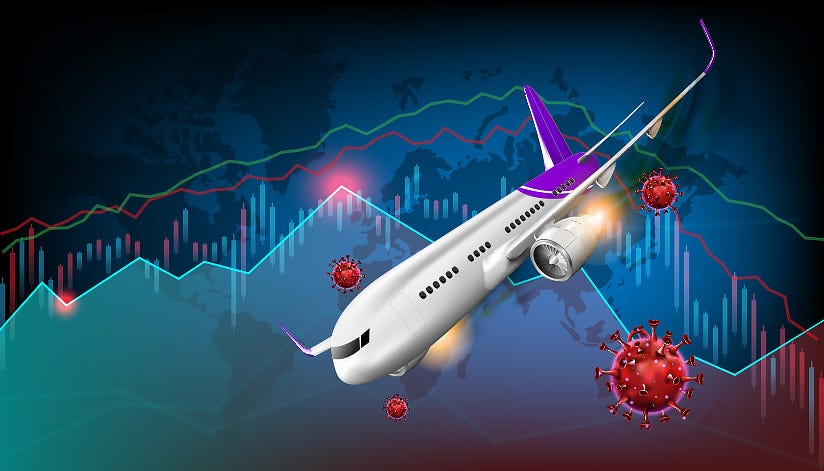
Research Reveals Nearly 90% of Airlines Impose Charges for Items, Prompting Transparency Debate
The significant surge in fees for flight add-ons has led to nearly 90% of airlines imposing charges for at least one supplementary fee in addition to the base flight cost, states a report.
Ryanair stands out as the carrier with the highest fees for extras like seat selection, baggage check-in, and insurance. The practice of offering all-inclusive services upfront is becoming increasingly rare among airlines.
NetVoucherCodes, a money-saving voucher website, conducted an analysis revealing that 89% of all airlines charge for at least one additional service, and this figure climbs to 97% among European carriers.
The contentious subject of add-on fees regained attention recently when an elderly couple was billed £110 by Ryanair for new boarding passes after inadvertently checking into the wrong leg of their flight.
Ruth Jaffe, aged 79, and her 80-year-old husband, Peter, mistakenly acquired their return boarding passes instead of the ones for their outbound flight to France. The resulting charges they faced prompted others to voice complaints about Ryanair’s fees on social media platforms.
In June, Rishi Sunak initiated a review of “drip pricing,” a tactic wherein companies obscure the actual costs of products and services by imposing additional charges on consumers. The prime minister announced that the government would investigate the prevalence of this practice and potentially establish measures to address the issue.
NetVoucherCodes conducted an assessment of comparable routes across the world’s major airlines, calculating the expenses related to add-ons such as carry-on baggage, 20kg checked bags, seat selection, fast tracking, insurance, and onboard Wi-Fi.
For example, in the case of a Ryanair flight to Ireland, an initial fee of £18.39 quickly surged to over £80 after optional extras were incorporated. This included charges of £22.49 for baggage check-in, £14.50 for one piece of carry-on luggage, £8 for seat selection, and £18.39 for insurance.
Ryanair stated that there were no concealed charges within their pricing structure, emphasizing that the quoted flight cost from the UK to Ireland at £18.39 was exceptionally competitive. They added that all the mentioned products were discretionary, giving consumers the choice to include or exclude them. Ryanair clarified that even if passengers opt for none of these additional products, they can still travel with a carry-on bag at the price of £18.39, which they deemed as remarkable value for consumers.
According to NetVoucherCodes’ approach, the average supplementary cost for European airlines was calculated at £45.43. For international airlines, the average was £26.09, while for US airlines, it reached £61.20.
Following Ryanair, Wizz Air secured the second spot, offering a flight to Hungary at £34.29, accompanied by £93.56 in add-ons. The airline boasts a comparatively economical base fare, implying that traveling without any additional services would result in savings rather than opting for an all-inclusive carrier.
Wizz Air emphasized that the charges were not concealed but rather transparently outlined on both the airline’s website and app. The airline noted, “As an ultra-low-cost carrier, we maintain low fares by providing optional add-ons at an extra cost, such as checked luggage or preferred seating. This approach allows Wizz Air to unbundle its offerings, ensuring that customers only pay for what they require.”
Consumer rights expert Martyn James highlighted the significant expansion of the add-on culture, pointing out that certain airline practices had been curbed in the past. He recalled that airlines used to charge for debit or credit card payments, but such practices were prohibited. James observed that once these revenue sources were restricted, airlines sought other avenues for additional charges.
James advocated for comparison websites to incorporate extra costs into the total price from the outset. He called for the Civil Aviation Authority to be granted more authority to compel airlines to present charges upfront. He also suggested that sometimes pricier flights might be preferable if they included all services.
Katy Maclure from Jack’s Flight Club, which tracks airfares for the most cost-effective options, highlighted the need for passengers to become more attuned to fees as airlines increasingly employ such tactics. She pointed out that over the past few years, this approach has become more prevalent, even among flagship airlines that previously included checked bags.
Maclure cited examples like Lufthansa and British Airways, which now impose charges for checked bags to certain destinations. Only a few airlines, like Emirates, include everything in the initial price, according to Maclure.
James stressed the necessity of greater support for passengers, particularly those who are vulnerable or elderly. He suggested that if self-check-in desks are making processes cheaper for airlines, there should be personnel available to assist individuals who may need help.
He advised passengers to assess their actual luggage requirements and carefully review the terms and conditions related to cabin bags. “Be skeptical, double-check everything, and research online to get an idea of seat and hold luggage charges alone, which will provide an estimate of the minimum fees you’ll encounter,” he advised.



